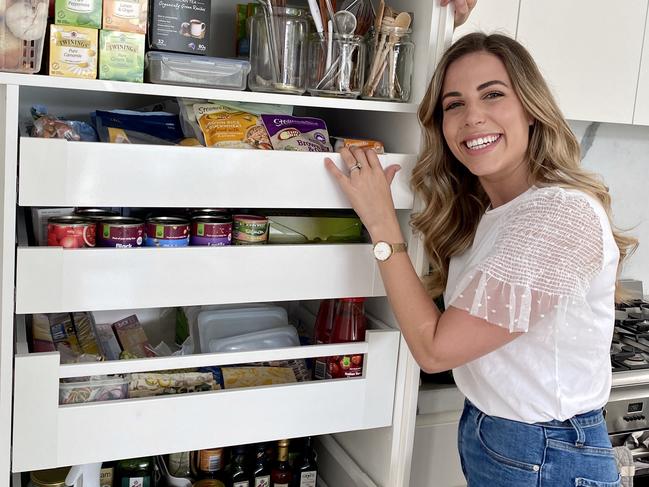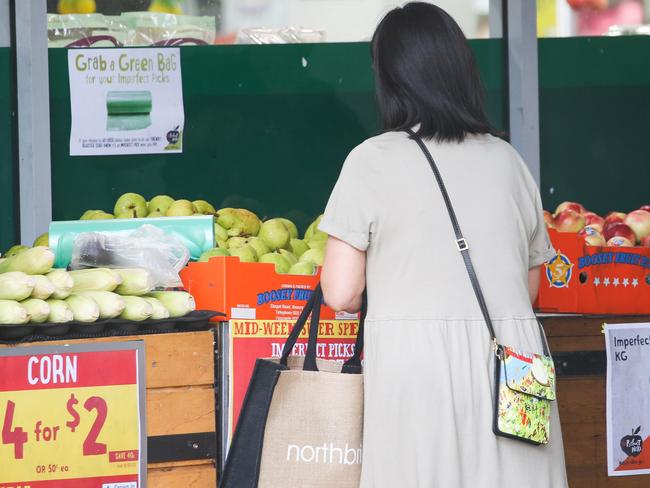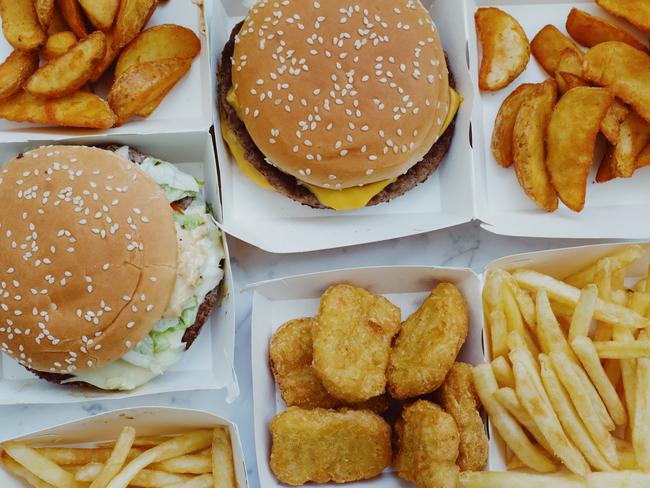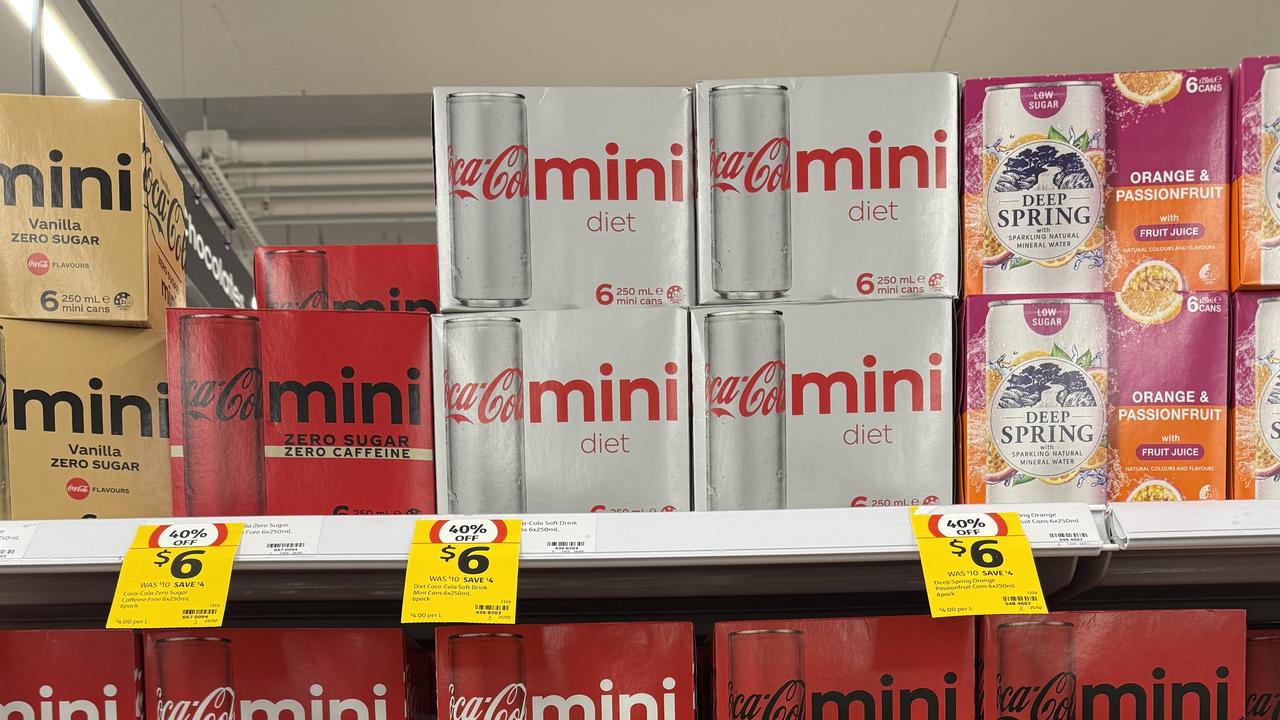‘Major, unavoidable’ reason Aussies aren’t eating healthily in 2025
A significant portion of our population has confessed their diet is “poor” or “very poor” – and one “major, unavoidable” thing is to blame.

Lifestyle
Don't miss out on the headlines from Lifestyle. Followed categories will be added to My News.
Almost half of all Australians are either on a gluten-free or vegetarian diet.
Body+Soul’sHealth of the Nation report – a comprehensive, independent survey of the food, fitness and health habits of more than 3000 Aussies of all ages – also found almost half the population (49 per cent) described the cost of living as the single biggest barrier to them eating healthy overall, and more than 60 per cent said it had impacted their ability to buy fresh produce.
The report found one in 10 of us currently follow a diet – with gluten-free (25 per cent), vegetarian (24 per cent) and high protein (20 per cent) the most commonly cited – though weight loss is no longer their primary motivation for doing so.

While much has been made about the growing prevalence of injectable weight loss drugs in recent years, Health of the Nation found that only one in five Australian dieters (19 per cent) had asked their GP about weight loss medications in the past year.
Another 29 per cent said they hadn’t but were considering it, but the overwhelming majority (52 per cent) said they hadn’t asked and didn’t plan to.
Instead, nearly two in five Australians (38 per cent) view diet as a path to overall wellness rather than merely a tool for weight loss, prioritising a balanced diet to improve their energy, mental clarity, and long-term health. and signalling a shift in public perception toward a more holistic approach to nutrition.
Such findings further signal this shift in public perception toward a more holistic approach to nutrition.
Millennials (those born between 1981 and 1996) and Gen Zers (those born between 1997 and 2012) were also much more likely to follow a diet for ethical or environmental reasons than Baby Boomers (those born 1946 and 1964), who often did so on the recommendation of a health professional or to manage a health condition.

Such eating habits can be beneficial to the wellbeing of not only the planet, nutritional biochemist Dr Libby Weaver told news.com.au.
“Sustainability and health concerns have driven more people to become vegetarian (for example), but it’s also a more affordable diet compared to one that includes meat or fish,” Dr Weaver said.
“Anyone choosing to eat less or no meat will likely find their grocery bill goes down. High protein plant-based foods like legumes are a fantastic grocery bill saving while being super nutritious.”
The latest Consumer Price Index found that annual food inflation eased slightly in the December 2024 quarter, though the cost of fruit and vegetables remained 6.3 per cent higher compared to 12 months prior, and meat and seafood prices were yet to level out.
Recent Australian Bureau of Statistics (ABS) data similarly found that, in the last decade, the price of beef and veal had risen 59 per cent, lamb prices by 41 per cent, pork prices by 30 per cent and chicken by 18 per cent. Over the same period, the Wage Price Index increased just 28 per cent in total.
“After rent, the cost of groceries is one of the major unavoidable expenses,” nutritionist and dietitian Lyndi Cohen told news.com.au.

A trip to the supermarket sets the average Australian household back $208 per week – so it’s no surprise, Ms Cohen said, that “adjusting how much you spend each week on your food intake can add up and make a difference”.
“If you’re finding it hard to pay for the basic costs of living, a $50 tub of protein powder rightly isn’t getting loaded into the grocery cart,” Ms Cohen said.
The belief that these extravagances are required to maintain a healthy diet, Dr Weaver said, could be part of the reason many Australians describe their eating habits as “poor”.
While 64 per cent of Health of the Nation respondents said they are knowledgeable when it comes to understanding nutrition, half of the population admitted they find it hard to keep up with information about what is healthy versus what’s not.
“People are overwhelmed with information – and they feel like to be healthy, they’ve got to choose the latest superfoods and kind of overpay for things that are currently in fashion that we’re told are healthy,” Dr Weaver said.

“Food has been made way too complicated … when it doesn’t have to be that way at all.
“I really want to encourage people to not feel like (in order) to have great health, you have to have all these fancy foods. It doesn’t have to be complicated, it doesn’t have to mean eating the latest fad thing.”
It is something Ms Cohen agrees with.
“Being flexible with your diet is going to be a superpower in helping you eat healthily, on a budget,” she said.
“The more restrictions you place on your diet, the greater the mental load to keep your grocery spending down. Therefore, eating a diverse range of foods and not placing too many restrictions (on them) will make it easier.
“Sticking to more whole foods, cooking more at home and planning meals are extra hoops that someone with intolerances may need to jump through to keep costs down – but luckily, these are all habits that’ll boost overall health and wellbeing.”
Body+Soul has teamed up with Laura Henshaw and Steph Claire Smith’s Kic to offer readers who sign up before March 3 four weeks free access to the app. On top of access to the entire app’s offering, Kic has created a bespoke Health of the Nation challenge, consisting of three weekly workouts that range from five to 20 minutes.
Originally published as ‘Major, unavoidable’ reason Aussies aren’t eating healthily in 2025





